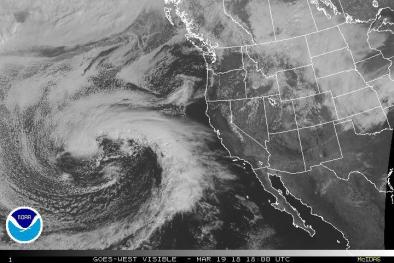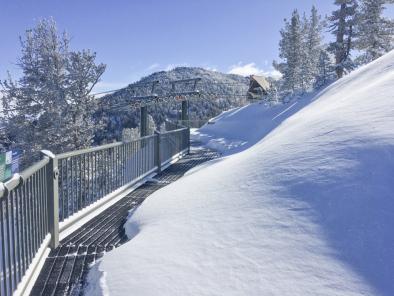Science Source
Climate change impacts on maritime mountain snowpack in the Oregon Cascades
- Investigates the effect of projected temperature increases on maritime mountain snowpack in the McKenzie River Basin (MRB) in the Cascades Mountains of Oregon, USA
- Simulates the spatial distribution of snow water equivalent (SWE) in the MRB for the period of 1989–2009
- Results show that a 2°C increase in temperature would shift the average date of peak snowpack 12 days earlier and decrease basin-wide volumetric snow water storage by 56%
- Finds that snowpack between the elevations of 1000 and 2000 m is the most sensitive to increases in temperature
- Finds that upper elevations were also affected, but to a lesser degree
- Finds that temperature increases are the primary driver of diminished snowpack accumulation, however variability in precipitation produce discernible changes in the timing and volumetric storage of snowpack
- The results of this study are regionally relevant as melt water from the MRB’s snowpack provides critical water supply for agriculture, ecosystems, and municipalities throughout the region especially in summer when water demand is high
- Concludes that while this research focused on one watershed, it serves as a case study examining the effects of climate change on maritime snow, which comprises 10% of the Earth’s seasonal snow cover
Related Content
Headline

Mar 23, 2018 | News Deeply
Grim Forecast for the Rio Grande Raises Concern
Headline

Mar 21, 2018 | California Weather Blog
Pineapple Express deluge in Southern California; high risk of Thomas Fire flash floods & mudslides
Headline

Mar 6, 2018 | BuzzFeed
Mountain Snow In The Western US Is Declining Because Of Climate Change, A New Study Finds
Headline

Mar 6, 2018 | The Mercury News
Welcome winter storm slows California’s plunge back to drought


